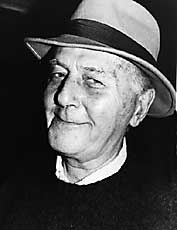|
David Drew Zingg
David Drew Zingg (December 14, 1923 – July 28, 2000) was an American photographer and journalist.[1] He spent nearly forty years in Brazil (mostly split between Rio de Janeiro and São Paulo), becoming an important figure in the cultural life of the both cities and the bossa nova movement of the 1960s. David Zingg was born in Montclair, New Jersey on December 14, 1923. He studied at Columbia University in New York City, majoring in history and literature, where he later gave classes in journalism. He worked in the newsroom of NBC, and volunteered in the U.S. Army Air Force in the Second World War. He was based in England. After he was grounded, he became a war correspondent in France and Germany for the Armed Services Radio. Zingg married Elizabeth Foulk in 1950. Together, they had three sons: Peter (b. 1951), Christopher (b. 1955), and Drew (b. 1957). The couple divorced in 1968. During 1950–1952, he was the editor of the United Fruit Company house organ, Unifruitco. In New York City, Zingg was an editor, writer and reporter for Look and Life magazines. He became a free-lance photographer during that period. Although he was based in New York, Zingg contributed text and photographs to publications including Look, Life, Esquire, Show, Town and Country, GQ, Sports Illustrated, Vogue, Interview, El Paseante, Zoom, Modern Photography, Popular Photography, The New York Times, the London Sunday Times, the Sunday Telegraph, and The Observer.  In 1959, Zingg landed in Rio de Janeiro as a crew member on the Buenos Aires-Rio Ocean Race, which he had covered for Life and Sports Illustrated. Enamored with Brazil, Zingg began to shuttle between Rio and New York . His coverage of Brazil's development, including the construction of Brasília, appeared in various US and British publications. He was instrumental in arranging for the seminal 1962 concert of Bossa Nova at New York's Carnegie Hall. In December 1964, Zingg came to Rio to do a photographic essay for Look Magazine. Zingg remained after the shoot. After taking up residence in Rio, he began to photograph for Adolfo Bloch's Manchete magazine. In his Carioca phase, Zingg photographed several films of the Cinema Novo movement. In a short time, Roberto Civita invited him to become part of the team that was producing the monthly magazine, Realidade. In 1978 Zingg moved from Rio de Janeiro to São Paulo. In the almost 40 years of his residence in Brazil, he photographed for Brazilian magazines, as well as working as a columnist for a number of them. From 1987 until his death in 2000, he worked at the Folha de S.Paulo newspaper, where he wrote a column entitled "Tio Dave" (Portuguese for "Uncle Dave"). David played a role in the "punk-big-small-pop-rock" band Joelho de Porco with his friend Tico Terpins. David Drew Zingg died on July 28, 2000, in São Paulo, Brazil, of multiple organ failure, after complications resulting from prostate surgery. David Zingg is survived by his three sons and five grandchildren. References
External links
|
||||||||||||||||||||||||
Portal di Ensiklopedia Dunia
